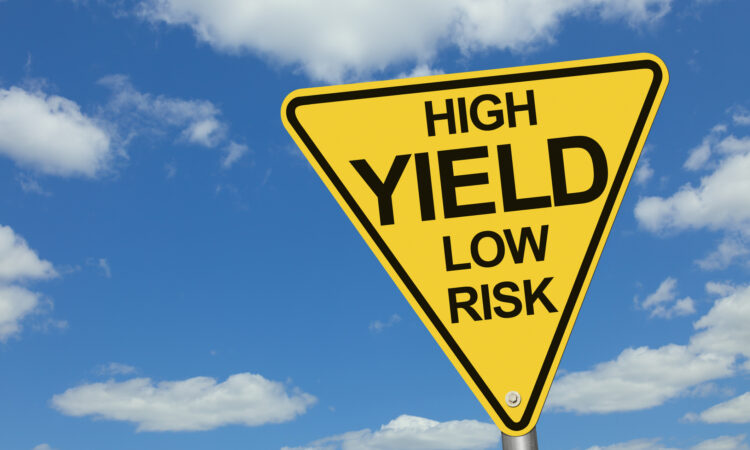
With interest rates expected to decline, high-yield dividend stocks offer attractive income potential and possible capital appreciation.
Dividend investing has long been a popular strategy for generating passive income and building long-term wealth. High-yield dividend stocks, in particular, can offer attractive returns to investors seeking regular cash flow from their portfolios. These stocks typically pay out a higher percentage of their earnings as dividends compared to the broader market average.
Recent economic indicators suggest that interest rates may soon decline, potentially making high-yield dividend stocks even more appealing. As bond yields fall, income-seeking investors often turn to dividend-paying equities as an alternative source of cash flow. This shift can drive up demand for high-yield stocks, potentially leading to capital appreciation on top of the dividend income.

Image source: Getty Images.
Armed with this background, here is a breakdown of two high-yield dividend stocks that may be worth adding to your portfolio soon.
An undervalued high-yielder
Pfizer (PFE 3.39%), a leading pharmaceutical company, presents an intriguing income opportunity given its substantial 5.58% dividend yield. The drugmaker’s rather modest forward price-to-earnings (P/E) ratio of 12.8 also indicates that its stock may be undervalued at current levels.
This view is echoed by Wall Street analysts, who project Pfizer’s shares are trading at a mere 10.2 times 2026 projected earnings — a notable bargain within the typically premium-priced pharmaceutical industry. Eli Lilly, for instance, trades at nearly 32 times 2026 projected earnings.
Perhaps most importantly, the pharma titan’s dividend appears to be sustainable, as evidenced by its trailing-12-month payout ratio of 68.2%. In other words, the drugmaker’s earnings comfortably cover the dividend distribution, which is a critical feature for long-term income investors.
Lastly, Pfizer’s diverse pipeline of innovative drugs and vaccines positions it well to not only sustain its substantial yield but also to continue its recent pattern of dividend growth. Over the past five years, the company has boosted its dividend by an average of 3.1%, which is well above average for a company paying a yield north of 5% (author’s data).
Given Pfizer’s solid financial footing, attractive valuation metrics, and promising product pipeline, it stands out as a potentially rewarding option for income-focused investors seeking both yield and growth potential in the pharmaceutical industry.
This high-yielder is a top contrarian pick
Bristol Myers Squibb (BMY 11.44%), another tier 1 pharmaceutical company, offers a healthy 5.3% dividend yield. And like Pfizer, Bristol’s shares trade in bargain territory at just 7.24 times 2026 projected earnings.
The drugmaker’s stock is cheap based on this valuation metric — compared to both its pharmaceutical peer group and the U.S. stock market at large — due to concerns about its upcoming bout with the patent cliff. A whopping 63% of the company’s current revenue is at risk from patent expires this decade, according to analysts at Morgan Stanley.
Aside from its attractive valuation, Bristol Myers Squibb’s modest payout ratio of 59.8% is also a big plus for long-term investors. This fairly low payout ratio for a big pharma stock suggests the dividend is sustainable.
While the drugmaker does have work to do to safely navigate the forthcoming loss of exclusivity for key growth drivers like cancer medication Opdivo, its robust pipeline and spate of recent acquisitions should drive notable levels of growth and dividend increases over the long haul.
The crux of the matter is that Bristol Myers Squibb is a proven commodity in terms of product innovation and shareholder value creation. Buying shares when market sentiment is at its nadir could prove to be a shrewd investment decision.
Key takeaways
Research has shown that dividend yields are strong predictors of stock returns over longer time horizons (more than 20 years). And while trying to time the market is never a wise idea, it may be an ideal time to stock up on high-yield equities due to the anticipated rate cuts by the central bank.
Pfizer and Bristol Myers Squibb sport yields north of 5%, appear to be severely undervalued relative to their long-term earnings potentials, and operate in an industry that’s expected to benefit from the aging global population over the next two decades. As such, these two stocks stand out as top vehicles to play a possible rally in high-yield dividend stocks.
George Budwell has positions in Pfizer. The Motley Fool has positions in and recommends Bristol Myers Squibb and Pfizer. The Motley Fool has a disclosure policy.
